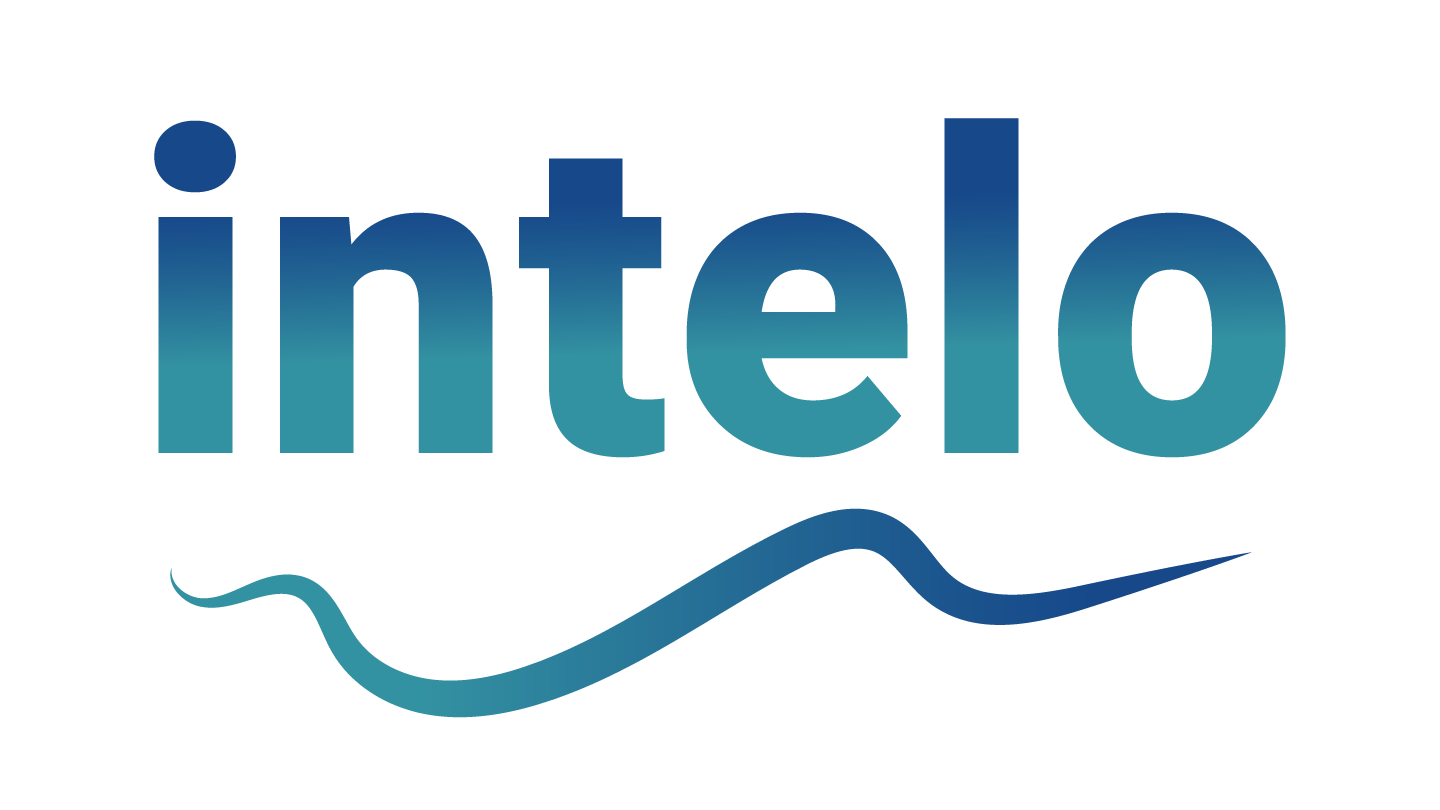OUR PROGRAMS
__________
Training Overview
At Intelo, we boast 55 years of combined experience in Intelligence, spanning both training and management across sectors like law enforcement, national security, and broader commonwealth government agency support. Our Intelligence Training portfolio encompasses analytical tradecraft, structured analytical techniques, and leadership training programs tailored for professionals in law enforcement, government, defence and a wide variety of private and commercial organisations.
Whether it is through the provision of one of our existing training packages or through the specific development of a training solution to meet your individual requirements, we are certain we will be able to work with you to find the right training solution.
The following sections outline the suite of training currently available from Intelo Training Solutions. We look forward to discussing further with you how we can contribute to the development of your intelligence professionals and leadership teams.
Fundamental to the design of all programs provided by Intelo Training Solutions are the elements of Andragogy – adult learning. All our programs have been developed with the professional adult learner at the core of the research, design and delivery phases of our training.
As such, each program accounts for the assumptions of Adult Learners and the key principles of this learning style to ensure participants get the best outcomes from the training experience.
- Need to know:Adults need to know the reason for learning something.
- Foundation:Experience (including error) provides the basis for learning activities.
- Self-concept:Adults need to be responsible for their decisions on education; involvement in the planning and evaluation of their instruction.
- Readiness:Adults are most interested in learning subjects having immediate relevance to their work and/or personal lives.
- Orientation:Adult learning is problem-centred rather than content-oriented.
- Motivation:Adults respond better to internal versus external motivators.
Each program is offered as a face-to-face program as well as through virtual delivery. The virtual delivery uses both WEBEX Meetings for secure interactive delivery coupled with MIRO for immersive online collaboration activities. (Alternative formats using Zoom or Microsoft Teams are available upon request)
Intelo Training Solutions’ programs require a minimum of 8 participants and are capped at a maximum of 16 participants per course.

Intelligence Analysis Tradecraft
Many of the challenges and opportunities faced by intelligence professionals today are founded in technology – the challenge of exponential increases in available data or the innovation of artificial intelligence and machine learning to help reduce the noise within those datasets. However, it does not matter how good the technology is at identifying and filtering the noise – we will never replace the human analyst to interpret the results and make critical decisions.
It is about understanding the intelligence question or problem being solved. We are all subject to Bias. We all make assumptions. The imperative with analytical tradecraft is our ability to understand how our bias and assumptions impact our decision making and influence our judgements. We will never have the complete picture – as intelligence professionals we work in the world of grey. Developing sound analytical practices that contribute to the rigour that is so necessary to ensure decision makers trust our assessments and rely on our judgements to make informed decisions.
Intelo has developed a range of offerings to develop and build analytical tradecraft.
Intelligence Analysis Tradecraft programs
Intelligence Analysis is the backbone of the advice your agencies provide to decision makers and partners. Intelligence analysts make critical decisions on incomplete datasets that directly impact operational outcomes.
The foundational analytical tradecraft course has been designed to develop analytical rigour, critical thinking and improve written and verbal communication skills through practical exercises. The course teaches participants how to prepare robust defendable assessments, tailored to the intended audience and how to deliver confident and impactful briefings.
This training is not formally assessed however it has been designed to align with the foundational intelligence analysis competencies developed for – and tested across – national security and law enforcement agencies.
Throughout the course participants will be provided feedback on their contribution to individual and group activities as well as for their written and verbal briefings.
The Foundational Analytical Tradecraft program comprises 5 days face to face training or 10 Half-day virtual modules.
This 1-day workshop (face to face or virtual) has been created to help any analyst, intelligence professional or decision maker understand and navigate the impact of bias and assumptions on their thinking and decision making. Covering elements of intuitive vs Analytical thinking as well as critical and creative thinking, this practical workshop explores these challenges and provides real-world solutions to address them.
In our experience, elements of threat and risk are some of the most confused and mis-used elements of intelligence practice across law enforcement and national security. Threat assessments and the components of threat that are used to determine these assessments are often not well understood.
This workshop is founded on our experience, developed from over a decade of writing and delivering intelligence training to the Australia and New Zealand Counter Terrorism Committee (ANZCTC) agencies.
This 1-day workshop (face to face or virtual) covers the fundamentals of Threat assessments and provides insight into the components of Threat and Risk.
We then focus on assessing specific threats, understanding and developing situational awareness, assessing threats to major events and dignitary visits, before exploring the role of intelligence in risk management.
We have incorporated an assessment writing workshop into this program to ensure participants produce threat assessments that are clear, non-ambiguous and most importantly – get actioned.

Structured Analytical Techniques
Structured Analytical Techniques (SATs) make up a critical part of the overall analytical rigour intelligence professionals apply to their judgements and assessments.
However, I have also found that there are many misconceptions around the cost/benefit of SATs, particularly in relation to the value they provide against the time they take.
SATs range from simple brainstorming and idea generation activities that intelligence professionals do every day – to complex facilitated discussions and tools used to build, unpick and test assessments, assumptions and to even manage analytical dissent.
The range of programs being provided cover this broad scope and include specific facilitation workshops to train individuals as SAT facilitators.
Structured Analytical Techniques programs
The SAT Fundamentals Workshop has been designed to provide a set of practical to enable intelligence analysts to add analytic rigour to their assessments and judgements. The program covers some of the more common SATs that do not require excessive amounts of time or a large number of people to run. The focus here is to provide some practical tools that will assist the intelligence officers to better understand the intelligence and identify where the gaps are by presenting and exploring the material from a variety of perspectives.
Key to the Fundamentals Workshop is the understanding of how bias and assumptions impact our decision making and analysis and the importance of analytic rigour.
SAT Fundamentals is offered as a 3-day face to face program or as 5 virtual half-day modules and includes an assessment writing workshop that focusses on the Bottom-Line-Up-Front methodology to assist in the delivery of a clear and concise assessment using appropriate estimative language.
This intermediate program is designed for intelligence professionals who are used to working with SATs but want to build their confidence and broaden the range of SATs used. Offered as a 3-day face -to-face program or covered over 5 half-day virtual modules that can be tailored for the client’s needs.
The refining SATs program extends beyond those SATs that are regularly used to explain the intelligence. The workshop explores how to select the right technique for the problem you are looking to solve then focusses on a range of tools including: organisational, exploration, diagnostic and reframing techniques as well as futures analysis and decision support techniques.
The best way to learn the value of SATs is to use them. This program provides a series of case studies where participants will select and use a variety of SATs to address the problems presented.
By completing the program, participants will:
- Select SATs appropriate for the problem at hand
- Understand and apply a range of SATs for a variety of intelligence problems
- Use and apply organisational and exploration SATs
- Use and apply diagnostic and reframing SATs
- Use and apply futures and decision support SATs
For many organisations, once the value of SATs becomes an embedded part of their culture of analytical rigour, the next phase is to train a cadre of SAT facilitators who are able to collaborate with individual work areas and assist intelligence officers with selecting and then facilitating SAT workshops for a specific problem.
The 3-day Facilitating SATs program teaches experienced Intelligence professionals the skills to enable them to facilitate these conversations and activities within their workplace. This hands-on program challenges participants from the get-go, enabling them to build the skills and confidence to lead the facilitation discussion. This program is also available over 5 virtual modules. (Noting the virtual program has a larger amount of homework and preparation required by participants.)
By completing the program, participants will:
- Develop key facilitation skills
- Understand and manage group dynamics
- Develop strategies to deal with dissent
- Develop the skills to appropriately engage with a work area to plan the Facilitated SAT session
- Select appropriate SATs for the problem at hand
- Understand the key differences between face-to-face and virtual facilitation
- Refine their practical facilitation skills through a series of practical facilitation activities

Intelligence Operations
Intelligence Support to Major Incidents (ISMI)
Founded on the extensive training and operational experiences our team have in running intelligence operations to support major investigations and incident responses. Our Intelligence Support to Major Incidents (ISMI) program teaches all levels of an organisation how to appropriately, staff, establish and run an intelligence response to a major event, incident or investigation. These programs align with the Australian Government Crisis Management Framework and the Prepare, Prevent, Respond, Recover principles of emergency management.
This modularised program comprises three separate components developed to target the specific learning requirements of:
- Intelligence officers, who play a central role in collecting and collating intelligence relevant to the operational requirements.
- Intelligence Analysts, who are required to evaluate, analyse and test this intelligence to deliver sound intelligence products that meet the operational leader’s needs – in a compressed timeframe.
- Intelligence Managers who establish and maintain the operational intelligence capability to meet the requirements of their key decision makers.
Each module runs for 2-days.
Organisations, based on training requirements, can combine any number of these modules to ensure their staff are suitably trained and prepared for the next major incident, planned event or response operation.
Each program is concluded with an immersive full-day exercise designed and developed to test the full capabilities of the intelligence response.

Leadership
The most difficult transition in anyone’s individual career is the move from professional ‘on the tools’ to the leader of professionals. Across government, this commonly occurs at the APS 6 and EL1 levels (or Sergeant equivalent ranks within law enforcement).
Many organisations provide management training to cover the additional policy and governance work that is also undertaken in these team leader roles but very few provide any skills to help them actually lead the people in their teams.
“Leading Teams” is a series of training packages developed by Intelo Training Solutions designed for aspiring, new and seasoned leaders alike. Each program is specifically tailored for the context within which the leader is operating. For new and aspiring leaders, we focus on the transition from team member to team leader and how to motivate and empower their teams to continue to do what they do best.
For seasoned leaders, the program offers a range of new skills to build on your leadership experiences and provides opportunities to reflect and perhaps modify some learned behaviours. This series has been tried and tested across law enforcement, government, national security and volunteer organisations alike.
The Intelo "Leading Teams" Series
The Leading Intelligence Professionals (LIPs) program has been specifically designed for new and aspiring leaders of intelligence teams to make that transition effectively and focus on how to motivate and empower their teams of intelligence professionals to continue to do what they do best.
The focus of the program can very easily be refined to target longer-term leaders as a skills refresher program, building on their extensive leadership experiences but enabling reflection and change to some of their learnt behaviours. LIPs is highly interactive and requires participants to be actively engaged in a range of workshops and individual and group activities.
LIPs has been developed as a 3-day face-to-face program and has also been adapted to be delivered over a series of 5 x half-day virtual modules.
A key aspect of LIPs is the provision by the host agency(s) of a range of EL2 and SES guest speakers to participate in a variety of panel discussions. These panel discussions have proven to be an extremely effective way to support the leadership goals of the program, provide insight for participants into leadership expectations of senior leaders within their organisations and have consistently rated in evaluations and feedback as pivotal elements of the program.
Where the host agency(s) are not in a position to provide the additional panel members, contracted speakers can be provided at an additional cost.
Each session of the program has been designed to focus on a separate leadership element.
Section 1 – The Leader
First, the emphasis is on the leader. Activities focus participants on the importance of leadership, the qualities of intelligence professionals and the scope of work undertaken by them. Participants will differentiate between their roles as managers and leaders from that of intelligence analysts and practitioners. The topic of effective leadership is presented from the perspective of leading intelligence teams and practical skills relating to achieving effective leadership are workshopped.
Section 2 – The Team
The focus of section two is ‘getting the most from your team’. Trainers will introduce the concept of psychological safety to examine effective team environments. Participants will develop the skills to improve psychological safety and accountability in their analytical teams. This is followed by exploring the individual drivers for engagement and motivation. Finally, the focus will shift to managing individual performance of intelligence analysts. Participants will undertake practical sessions for coaching and feedback.
Section 3 – The Context (Challenges and Opportunities)
The final section of the program investigates the context challenges and opportunities of analytical work in the current and future environments. The day centres on the impacts of data transformation, a diverse workforce, burnout and self-care. Maintaining analytical rigour and expectation management are also explored with a focus on the practical action leaders of analytical teams can undertake to address these issues.

Train the Trainer
Trainers working for RTOs, are required to complete a number of professional development units throughout each year to retain their training certification. Unfortunately, it has been my experience that trainers across non-RTO enterprises rarely get the opportunity to continue to develop and hone their skills. For many of these trainers, the reality is they are understaffed and their time is spent delivering the constant churn of training courses their organisations require of them.
Our Train the Trainer programs include specific training for brand new trainers, refresher programs and professional development opportunities for trainers within non-RTO enterprises.
Intelo has created four specific train the trainer workshops, focussing on key theory and practical examples, suitable for adult vocational trainers. Each workshop runs for approximately 3 to 4 hours.
By completing the program, participants will:
- Develop key training and facilitation skills
- Understand Adult learning Principles and learning preferences
- Explore experiential learning methods
- Improve their delivery and presentation style
- Create engaging training activities
- Improve course design
- Refine Assessment and moderation tasks and processes
- Practice and develop effective coaching and feedback skills
Train the Trainer programs
- Adult Learning Principles – Applying the principle of andragogy for adult learners
- Learning Preferences – Building multi-modal learning experiences
- Experiential Learning – How to create great learning experiences in the classroom through Experiential learning theory
- Facilitation and delivery skills
- Emotional Intelligence and Creating Connections
- Active Listening and Questioning Techniques
- Working the room
- Brain Breaks – Tips for keeping your participants switched on and engaged.
- Course Design – Start with Why
- Program design and Content development
- Assessment methodologies and designing effective assessment tasks
- Moderation – When and how to moderate training and assessment tasks
- Feedback – SBI Tool for effective feedback
- Coaching – Using the GROW model for coaching and assessment feedback
